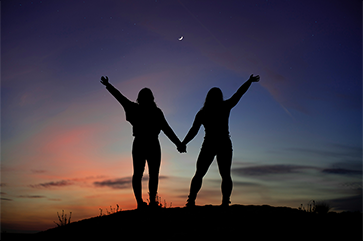Focus on friendship research
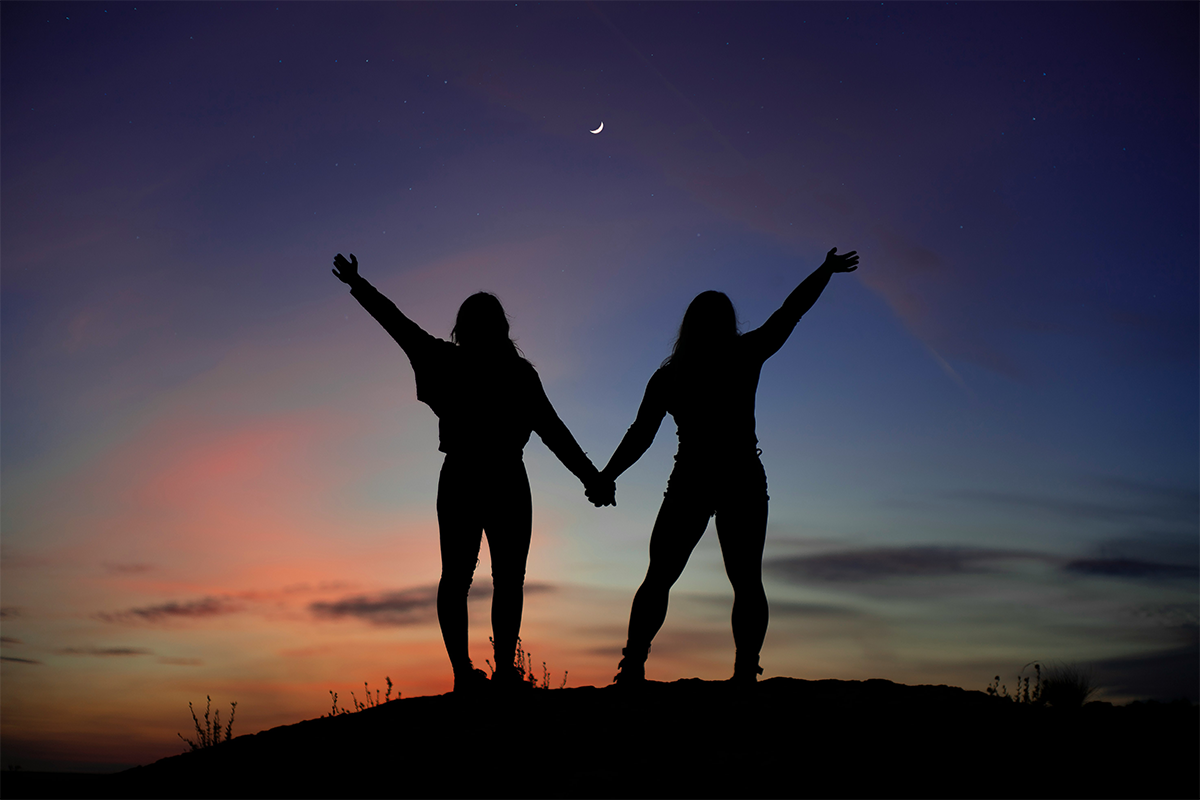
Antonin Duallia/Unsplash
By Jonathan Riggs | September 1, 2025
Meet five of the Bruins in Jaimie Krems’ UCLA Social Minds Lab who are also important contributors to the UCLA Center for Friendship Research and hear about their varied work — on friendship, awe, jealousy and more — in their own words.
Elias Acevedo, doctoral student in communication
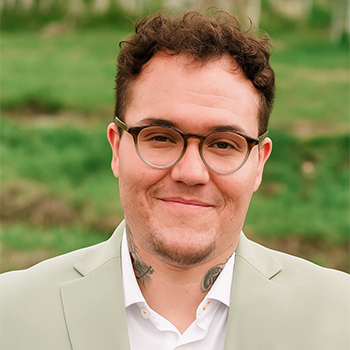 We think awe evolved to help us harvest rare and valuable information. When something shatters our expectations, or is interpreted as deeply meaningful — a massive landscape, a brilliant idea, a first glimpse of your newborn — it often signals that there’s something important to learn. Awe helps us tune in, take it in and remember it. On this account, you can think of awe as the mental equivalent of hitting “record” on a camcorder. When we encounter something information-rich, say, an eclipse or a master at work, awe helps us freeze, focus and rewards us for paying attention, so that we absorb and remember more of that information, before it disappears or escapes from view.
We think awe evolved to help us harvest rare and valuable information. When something shatters our expectations, or is interpreted as deeply meaningful — a massive landscape, a brilliant idea, a first glimpse of your newborn — it often signals that there’s something important to learn. Awe helps us tune in, take it in and remember it. On this account, you can think of awe as the mental equivalent of hitting “record” on a camcorder. When we encounter something information-rich, say, an eclipse or a master at work, awe helps us freeze, focus and rewards us for paying attention, so that we absorb and remember more of that information, before it disappears or escapes from view.
I’m a particularly awe-prone person. When I see a sweeping natural landscape or read a new theory that makes sense of something mysterious, my reaction is intense: I get chills, a deep sense of beauty and meaning, and am completely absorbed in the moment. These experiences stick with me. They become landmarks in my memory that I return to again and again.
When I did my master’s at the University of Colorado, my advisor, Laith Al-Shawaf, was an expert in the evolutionary study of emotion. Naturally, I wanted to focus on awe — partly because the most meaningful moments in my life were awe-inspiring, and partly because awe remains one of the few major emotions with no clear consensus on its evolved function. That mystery still motivates me.
There are a few surprising implications of our theory that I think are particularly cool:
• Awe might play a role in belief formation. If awe tags information as important and memorable, it might also shape the stories and ideas people come to believe. That has big implications, from education and persuasion to conspiracy theories.
• Tiny things may be just as awe-inspiring as massive ones. Think of the detail in a snowflake or a name carved into a grain of rice. We predict that the amount of information packed into something can influence the awe response. If something tiny reveals a hidden world, it can be just as powerful a trigger as a towering mountain.
• The best views aren’t just pretty. High vantage points give you access to more information about your environment. That’s useful for survival and likely explains why we feel awe when overlooking a vast canyon or sweeping landscape. Your brain is soaking it all in to help you remember important features to navigate your surroundings.
• Awe might help explain why we love sharing cool facts. If awe marks something as valuable information, it makes sense that you’d want to pass it along. That “whoa, did you know…?” impulse may be tied to awe’s connection to social emotions such as gratitude and humility. In that way, awe could help drive social connection.
The first time I encountered evolutionary psychology was awe-inspiring. It felt like someone had handed me a pair of glasses that made hidden patterns in human behavior suddenly visible. That sense of clarity and scale — of everything clicking into place — is the exact kind of experience my research now tries to explain. It’s stayed with me ever since and continues to fuel my work today.
Hyewon Hong, doctoral student in psychology
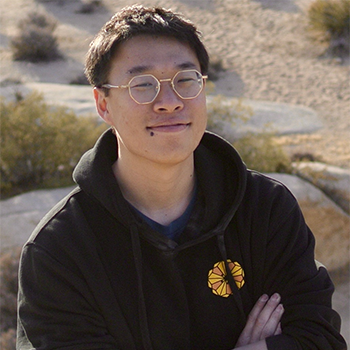 Broadly, I care about three things: What makes somebody a good friend? Why are good friends important to have for our health and happiness? How can we encourage people to make and keep more and better friends?
Broadly, I care about three things: What makes somebody a good friend? Why are good friends important to have for our health and happiness? How can we encourage people to make and keep more and better friends?
I started doing psychology research with my undergraduate advisor Kristjen Lundberg at the University of Richmond. As I was doing various literature reviews for her, I noticed that the field of friendship research seemed to be severely understudied.
The more I dug into it, the less I found, and this really, really bothered me — there are so many recommendations for how you might make your romantic relationships better, but so few recommendations for how you can make your friendships better. This has since transitioned into a blazing desire to address this research gap and encourage more people to pay attention to the friendships that are so, so, so important to them.
Friendships impact your physical health! The current leading theory on why/how they do this is one called the “stress buffering hypothesis.” Generally speaking, feeling stressed is very bad for you physically and mentally. When you have good relationships around you, they form a sort of protective bubble that both limits the amount of stress you feel and helps to regulate stress faster. Friendships have been shown to provide protection from mortality, to improve your immune system and encourage healthier habits. This, of course, is alongside all of the obvious mental benefits that they provide for us as well.
Who would be my ultimate pop culture or historical best friend? Absolutely no one! I would keep my current best friend(s) to be my best friends. Shout out to Alan Boldt and George Jiang for being by my side for the last 11 years, jeez time flies. If I were to choose someone to be a new friend, I’d probably say Simmon from “The Name of the Wind” by Patrick Rothfuss — just a textbook loyal friend who’s always by your side and willing to help.
My advice to everyone is to call your friends more! They probably miss you just as much as you miss them.
David Pinsof M.A. ’15, Ph.D. ’18
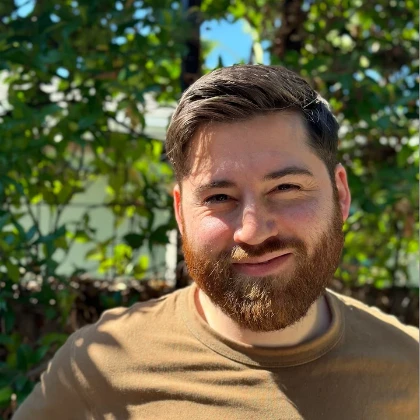 I’m interested in the evolutionary origins of friendship. Why are we the kind of creature that evolved to make, keep and break up with friends? I think about friendship as a kind alliance and use game theory to understand it. I’m also interested in humor as a tool for cementing friendships and subtly excluding people who don’t get the joke.
I’m interested in the evolutionary origins of friendship. Why are we the kind of creature that evolved to make, keep and break up with friends? I think about friendship as a kind alliance and use game theory to understand it. I’m also interested in humor as a tool for cementing friendships and subtly excluding people who don’t get the joke.
I began my research as a political psychologist. I was interested in studying political alliances between interest groups and how they shape our political beliefs. The more I learned about political alliances though, the more I realized how similar they were to friendships. Political parties are like cliques. Ideologies are like the two sides of a story that emerge when two people get into a fight. Believing in an ideology is like believing your friend’s side of the story. Partisanship is a kind of friendship and friendship is a kind of partisanship. Ultimately my goal is shed light on politics via friendship and friendship via politics.
Humor is not a frivolous waste of time but is crucial to our survival as social animals. Our species could not have taken over the world without a sense of humor.
My historical best friend would be Charles Darwin because I’d love to watch his eyes light up as I explained all the wonderful ways his theory has shed light on the human condition. Plus, by historical accounts he seemed like a good hang.
Nina Rodriguez, doctoral student in psychology
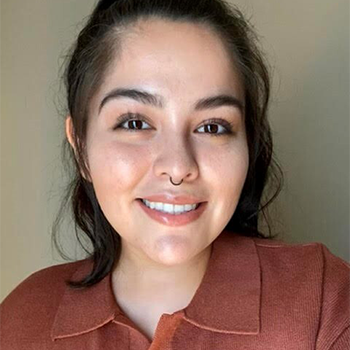 I try to understand how everyday people navigate conflicts in their relationships. For instance, what are the emotional expressions and behaviors people use to get what they want from other people? Decades of research shows us that men can use their strength to settle conflicts, but how do women, children and the elderly get what they want from others? I find in my research that people expect women, children and the elderly to cry, pout and give the silent treatment to get what they want. As applied to friendship, I am also interested in how friends/best friends handle conflict and how that affects the well-being of the friendship.
I try to understand how everyday people navigate conflicts in their relationships. For instance, what are the emotional expressions and behaviors people use to get what they want from other people? Decades of research shows us that men can use their strength to settle conflicts, but how do women, children and the elderly get what they want from others? I find in my research that people expect women, children and the elderly to cry, pout and give the silent treatment to get what they want. As applied to friendship, I am also interested in how friends/best friends handle conflict and how that affects the well-being of the friendship.
I first got interested in conflict/aggression from classes I took on comparative animal behavior and primatology as an undergrad. There were much more similarities between humans and non-human primates in how they cooperate and handle conflict, which got me thinking about how people handle conflicts in their everyday lives, romantic relationships and friendships.
The most interesting thing from my research on conflict is that across cultures, people possess relatively accurate stereotypes about who is going to use what aggressive acts when in conflict. People stereotype men to use physical aggression and women to seek social support and give dirty looks when in conflict with a stranger. These stereotypes tend to track reality: Men themselves report using more physical aggression and women themselves report seeking social support and giving dirty looks more.
My pop culture best friend would be Buffy Summers from “Buffy the Vampire Slayer” because she is so cool (obviously). She is a good friend, fights well and will protect the world (and me) from all the ghoulish bad guys!
Vanessa Zankich, doctoral student in psychology
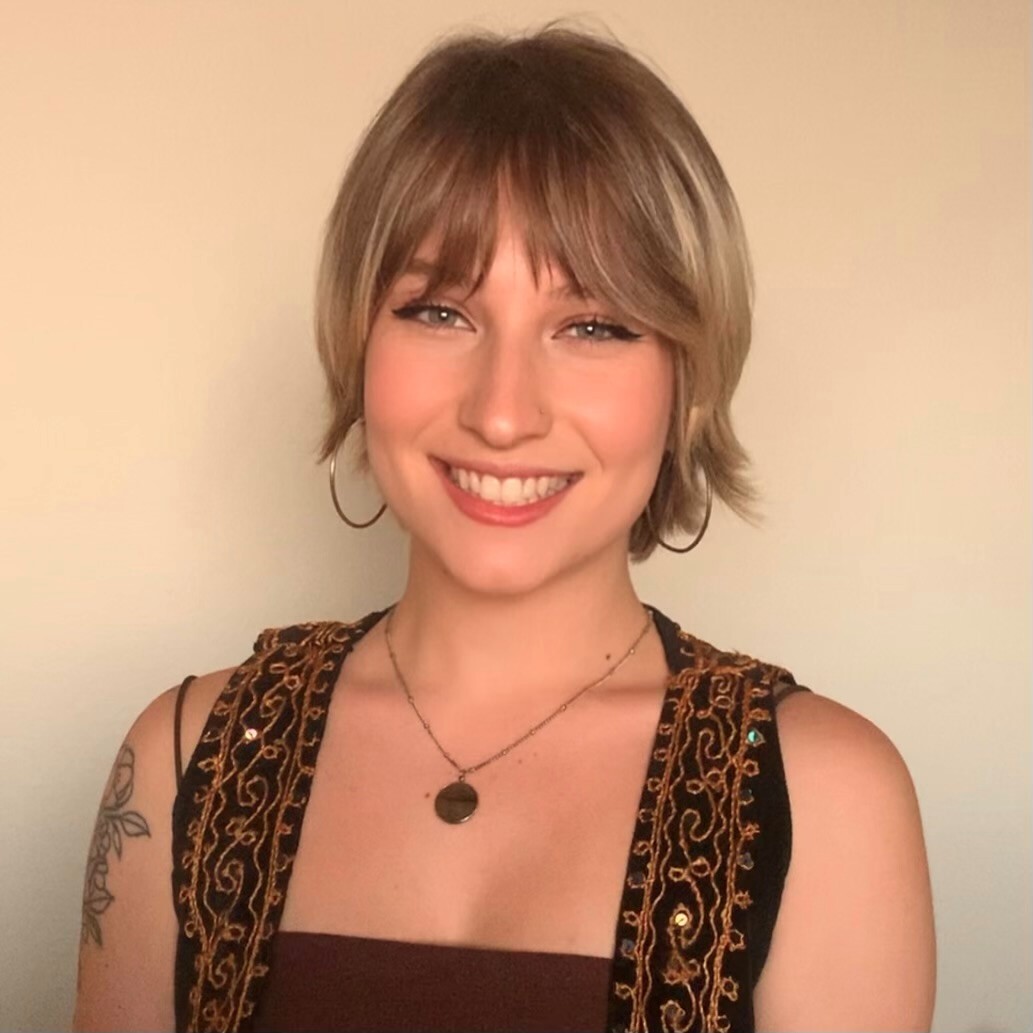 My research examines the kinds of social information and strategies people use to maintain their closest friendships, especially during times of conflict and major life events. One ongoing project explores the role and triggers of jealousy in adult best friendships. Another looks at how people navigate competition with same-gender friends and major life changes, such as the transition to new motherhood. By applying concepts from both social and evolutionary psychology, I aim to build a richer psychological understanding of the role friendship plays in human life and well-being. Ultimately, my work seeks to inform both the theory of friendship and practical strategies for sustaining beneficial friendships and ending maladaptive ones.
My research examines the kinds of social information and strategies people use to maintain their closest friendships, especially during times of conflict and major life events. One ongoing project explores the role and triggers of jealousy in adult best friendships. Another looks at how people navigate competition with same-gender friends and major life changes, such as the transition to new motherhood. By applying concepts from both social and evolutionary psychology, I aim to build a richer psychological understanding of the role friendship plays in human life and well-being. Ultimately, my work seeks to inform both the theory of friendship and practical strategies for sustaining beneficial friendships and ending maladaptive ones.
My interest in studying friendship was sparked during a long, reflective conversation with a close friend. As we shared our thoughts on the complexities of friendship, I realized how much of my time is spent navigating or thinking about these dynamics. Many of my beliefs about friendship were intuitive or anecdotal, but when I looked to the literature to validate them, I was surprised by how little research existed on adult friendship despite its central role in our lives. It was this striking mismatch between the importance of friendship and the limited scientific attention it has received that motivated me to pursue this line of research.
The most interesting finding from my research so far is that friendship jealousy seems uniquely attuned to cues that a valued friend might replace us with someone else. While low levels of jealousy can arise when a friendship feels unfair or when a friend’s new friend outshines us in a dimension central to our identity, jealousy intensifies when that other friend has interfered with our relationship — or when there are signs that our friend may actually replace us, regardless of how the other person compares. In other words, friendship jealousy appears well-designed to help us protect our closest bonds by responding to signals of social replacement. So, although jealousy may feel uncomfortable or even shameful, it’s often a natural — and likely adaptive — response that helps preserve our most meaningful friendships.
If I could pick any fictional figure to be my best friend, I would choose June Osborn from “The Handmaid’s Tale.” June is a fiercely loyal, intelligent, strong-willed and passionate leader of the resistance against an all-powerful dystopian regime. She consistently proves herself to be an empathetic and unwavering ally to other women — a quality I deeply value in my own friendships. Her willingness to sacrifice her own safety for the well-being of others signals a rare combination of selflessness, courage and conviction. I imagine she’d be the kind of friend who not only shows up when it matters most, but also pushes me to be braver and more principled, much like I strive to do in my own work on building and sustaining resilient, meaningful connections.
There’s exciting work ahead for the Social Minds Lab here at UCLA. As some of the first to rigorously investigate adult friendship processes, we’re in a unique position to make groundbreaking contributions to the field. We’ll be sharing some of our findings at the inaugural Friendship Research Conference, to be hosted by UCLA in 2027. It’s long past time we start thinking seriously about friendship — both as a scientific topic and as a vital part of human life. I hope our work inspires others to be curious about how — and why — we form, maintain and dissolve friendships, and to better appreciate the unique value that high-quality friends bring to our lives.
Learn more about Professor Jaimie Krems and her work here.


